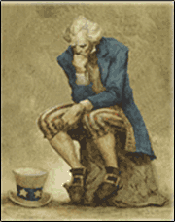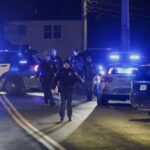
–>
July 5, 2023
Last week, Michelle Obama, the politician, issued a formal position statement on Twitter regarding the Supreme Court decision to eliminate affirmative action in higher education. In doing so, Michelle not only revealed her political ambition, which I believe includes the Democratic nomination for president in 2024, but also the likelihood that she herself was an affirmative action student at Princeton University in 1981.
‘); googletag.cmd.push(function () { googletag.display(‘div-gpt-ad-1609268089992-0’); }); document.write(”); googletag.cmd.push(function() { googletag.pubads().addEventListener(‘slotRenderEnded’, function(event) { if (event.slot.getSlotElementId() == “div-hre-Americanthinker—New-3028”) { googletag.display(“div-hre-Americanthinker—New-3028”); } }); }); }
In my film and book of the same name, Michelle Obama 2024: Her Real Life Story and Plan for Power, I do a deep dive into Michelle’s Princeton University experience. What I discovered is an obvious beneficiary of racial preferences who feels obliged to deny her privilege and to denounce the very system that bestowed those privileges as racist.
In the years prior to applying to Princeton University, Michelle and her brother Craig avoided the all-Black South Shore High School only a one block walk from their home. The Robinson family wanted their children to study with Whites. This was no surprise given that Michelle had been beaten up by the neighborhood kids for “acting White” and “talking White” during her childhood. Michelle writes in her memoir, Becoming, about getting into a fist fight with a girl who repeatedly called Michelle an “oreo” – a major insult meaning you are Black on the outside but really White on the inside. Michelle had no desire to study with “those people” for high school.
Michelle’s brother Craig was sent to an expensive private Catholic school, Mount Carmel (the Robinsons were not Catholic), while Michelle took two buses 90 minutes to attend Whitney Young magnet school. At Whitney Young, Michelle was able to keep up with her school work and get decent grades by spending twice as much time on homework as her peers. However, Michelle’s shortcomings were exposed during testing. She admits to having done did poorly on standardized tests, including the SATs.
‘); googletag.cmd.push(function () { googletag.display(‘div-gpt-ad-1609270365559-0’); }); document.write(”); googletag.cmd.push(function() { googletag.pubads().addEventListener(‘slotRenderEnded’, function(event) { if (event.slot.getSlotElementId() == “div-hre-Americanthinker—New-3035”) { googletag.display(“div-hre-Americanthinker—New-3035”); } }); }); }
When it came time to apply for colleges, Michelle once again aspired to be as far away from the Black community as possible. Her preference was to follow her brother to Princeton University, where he was a star basketball player. However, Michelle’s low test scores were a problem. Here is what Prep Scholar had to say about getting into Princeton: “If you apply with a score below a 1570 SAT or a 35 ACT, you unfortunately start out with the odds against you and have a tiny chance of getting in.” A White Whitney Young classmate of Michelle’s placed seventh in her class compared to Michelle’s thirty-second, but was accepted by none of the Ivy League schools to which she applied. Princeton took Michelle.
Rather than acknowledging the affirmative action boost, Michelle has played the race card to falsely claim she was discouraged from applying. On numerous occasions, she has accused her Whitney Young high guidance counselor of profiling her racially. In a recent interview with Gayle King, Michelle claimed that the counselor had said to her, “You’re Black applying to Princeton, maybe you’re stretching.” Unfortunately for Michelle, in my research I discovered that Michelle’s high school counselor was a churchgoing Black woman and assistant principal named Nan King. Michelle gets away with her lie smearing this Black counselor only because she passed away in 2005. Her racial hoaxing has never quite risen to the Chicago standard set by Jussie Smollett, but it has been much more consequential.
Arriving at Princeton, Michelle struggled academically. Years later, Michelle would tell ABC’s Robyn Williams, “I didn’t even know the language of that college. What was a syllabus? Never heard of it!” In various commencement addresses, Michelle has told of getting her first ever C in Greek mythology. In her memoir Becoming, she tells of floundering her way through a theology class as a freshman, “ultimately salvaging my grade with an eleventh-hour, leave-it-all-on-the-field effort on the final paper.” Luckily, Michelle learned what to do about poor grades at Princeton from brother Craig. When asked at a public forum to explain why he left his major of engineering, Craig spilled the beans. “My mid-term grades were really the reason, a C, two Ds, and an F. That is how I ended up majoring in Sociology.”
Michelle quickly followed suit and ran to the non-judgmental sociology department to try to salvage her grade point average. And if that weren’t enough of a cop-out, within the field of sociology, Michelle concentrated in “Afro-American Studies.” If the goal was to learn about being Black, what was the point of her leaving a city with a million Black people for an elite campus with a few hundred? As a Black engineering student in Michelle’s class wrote, “I’m black, I’m aware of that, but I never wanted that to be the center of my education. If I’d wanted that experience, I would have gone to Howard University.”
Few have read Michelle Obama’s 98-page senior thesis, “Princeton-Educated Blacks and The Black Community.” Among those who did was the late British writer Christopher Hitchens. It was, said the caustic Hitchens, “not written in any known language.” He was correct. If butchering grammar and logic were a crime, Michelle would still be in custody. Nor was spelling Michelle’s strong suit. She misspelled at least forty common words, rendered in her language as “activites,” “occured,” “professsors,” “respndents,” “stongly,” “desparation,” and “intelectual” to name a few.
I learned from studying Michelle’s thesis something much more profound – her thesis is in fact a cry for help. Michelle used the thesis to resolve an identity crisis that the Afro-American studies program had triggered in her. “My four years of exposure to a predominately White, Ivy League University has instilled within me certain conservative values,” wrote Michelle. “As I enter my final year at Princeton, I find myself striving for many of the same goals as my White classmates – acceptance to a prestigious graduate or professional school or a high paying position in a successful corporation.” Michelle then asked, “Is it possible that other Black alumni share these feelings?” Michelle wondered if they embraced “White” ambitions like her and might validate her.
‘); googletag.cmd.push(function () { googletag.display(‘div-gpt-ad-1609268078422-0’); }); document.write(”); googletag.cmd.push(function() { googletag.pubads().addEventListener(‘slotRenderEnded’, function(event) { if (event.slot.getSlotElementId() == “div-hre-Americanthinker—New-3027”) { googletag.display(“div-hre-Americanthinker—New-3027”); } }); }); } if (publir_show_ads) { document.write(“
Clearly Michelle did not belong in the Afro-American studies program. She apparently joined only to get good grades. So here was Michelle, a well off kid from a political Chicago family in a department of radical professors who taught her she was Black and only Black, and no one in American society would ever think of anything otherwise. To that point, the only racism she had experienced was from hostile Black kids who thought her not black enough. Having mixed freely with Whites at home and in her Chicago high school, Michelle had been accepted by everyone, and had learned that if she worked hard she could achieve anything, but the message of Princeton’s Afro-American studies program was to the contrary and clear: you are, and always will only be, viewed in life as a racial stereotype.
That was a blow to Michelle – how to move forward from that realization? In Michelle’s thesis, her survey of Black Princeton alumni brought the relief she needed. Michelle’s responses were that the “feelings of obligation” alums felt towards their less fortunate brethren, including “the Black community” and “the Black lower class” had significantly “decreased” once they had left Princeton. Michelle’s thesis affirmed for her that seeking refuge in blackness was a dead end. For Michelle, “blackness” had only been a tool to advance her interests in a White liberal world, not an end in itself.
By the last months of her senior year, Michelle shifted back into her bourgeois Chicago mode and was preparing for future opportunities, like Harvard University. Applicants to Harvard Law typically have LSAT scores in the 98 to 99 percent range and GPAs above 3.80. In view of her previous test scores, it is unlikely that Michelle came close in either category. If she had been from a “disadvantaged” background, Harvard’s elastic standards might have made sense, but there was nothing disadvantaged about Michelle. She came from a solid two-parent family, attended an outstanding public high school, graduated from Princeton, and spoke “like a White girl.” Her brother’s acceptance made her a genuine legacy, and she even had an uncle who received a Harvard degree, making her kind of a double legacy student.
Michelle’s skin color opened doors that would have been firmly closed to an actual White girl with comparable credentials, even a White girl from a disadvantaged background. Once again Michelle benefited from affirmative action; her skin color was an asset, not a liability at all. After Harvard, she would aggressively thrust herself into the very center of an elite, well-integrated society. Although she likely did not realize it during her time at Princeton, Michelle had unconsciously acquired a race-based bag of tricks from which she could draw in her quest for political power one day. At various podiums on the Obama campaign trail and beyond, Michelle would play the role of her Princeton professors, telling the American public that yes, America is a racist country in which Blacks will always be thwarted.
Many are wondering why Michelle Obama has maintained such a high political profile since leaving the White House 6 years ago. She wrote two recent autobiographies, founded a voter registration organization called “When We All Vote”, and was the keynote speaker at the Democrat Convention in 2020 – exactly mimicking Barack’s activities before he ran for President. In addition, you might remember that it was Michelle Obama who called for Donald Trump to be wiped off of Twitter and other social media the day before he was canceled.
Michelle Obama is actually a better politician than her husband Barack. She’s a better speaker and comes across more authentic, even though her race-based background stories are just as fictitious as Barack’s. Meanwhile the Democrat party has set Michelle up perfectly to become their nominee, with their first primary in South Carolina, where half the Democrat primary electorate is Black and a state where Michelle’s grandparents are from. And, most obviously, the Democrat national convention will be in Chicago. Get ready for America’s first “homegirl” political convention in 2024!
Hollywood film director Joel Gilbert is president of Highway 61 Entertainment. Among his many films are political documentaries including The Trayvon Hoax: Unmasking the Witness Fraud that Divided America; Trump: The Art of the Insult; There’s No Place Like Utopia; Dreams from My Real Father; Atomic Jihad; and Farewell Israel: Bush, Iran and the Revolt of Islam and the new film and book MICHELLE OBAMA 2024: Her Real Life Story and Plan for Power.
Photo credit: Tim Pierce CC BY 2.0 license
<!–
–>
<!– if(page_width_onload <= 479) { document.write("
“); googletag.cmd.push(function() { googletag.display(‘div-gpt-ad-1345489840937-4’); }); } –> If you experience technical problems, please write to [email protected]
FOLLOW US ON
<!–
–>
<!– _qoptions={ qacct:”p-9bKF-NgTuSFM6″ }; ![]() –> <!—-> <!– var addthis_share = { email_template: “new_template” } –>
–> <!—-> <!– var addthis_share = { email_template: “new_template” } –>






